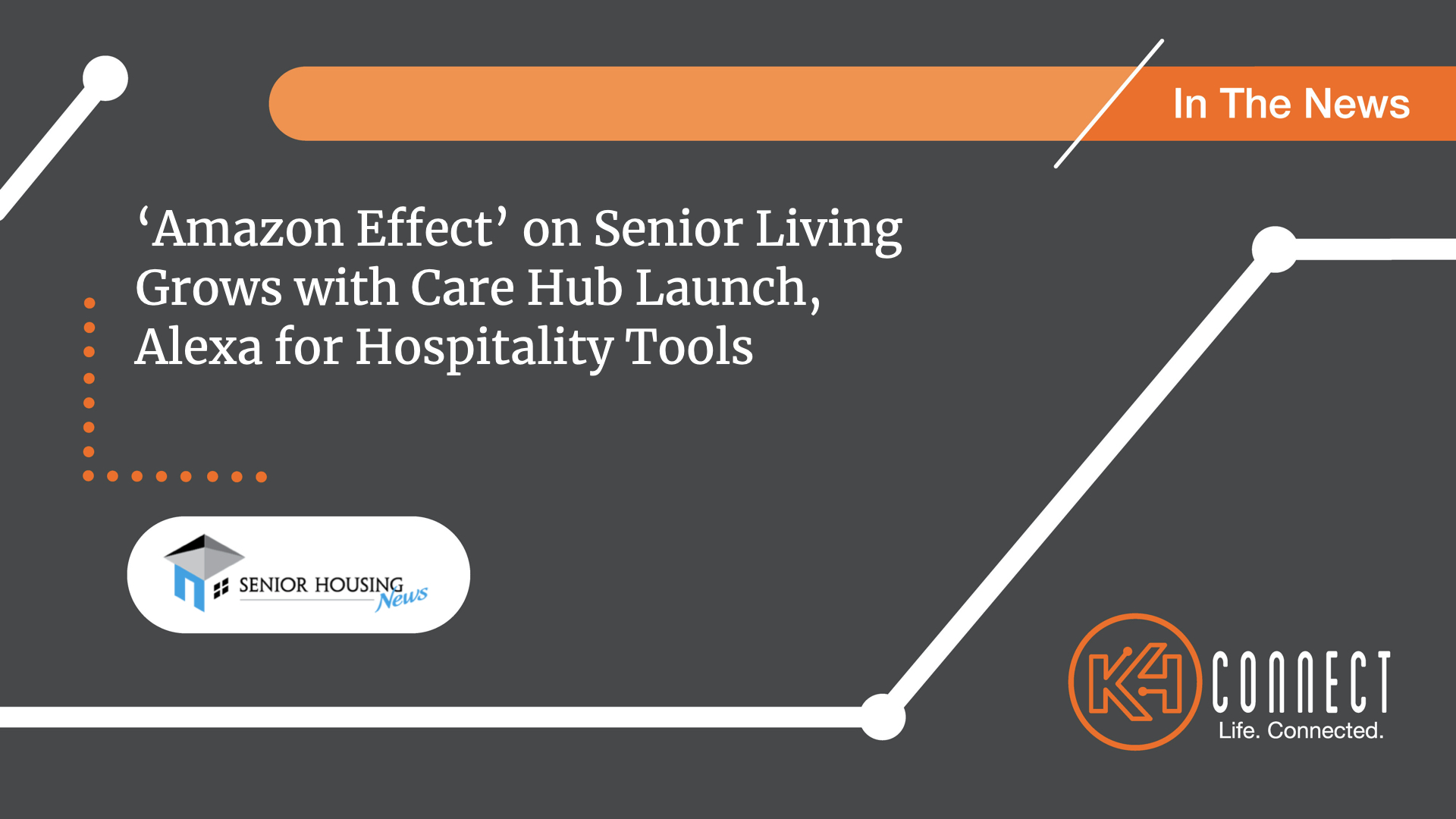“With this new update from Alexa for Hospitality, we can now offer simpler, more intuitive tooling for senior living community teams to manage the Alexa experience for their residents,” says Scott Moody, K4Connect CEO and Co-Founder.
By Tim Mullaney
November 16, 2020
Amazon (Nasdaq: AMZN) is continuing its push into the older adult market with the launch of an Alexa app called Care Hub, as well new tools recently made available via Alexa for Hospitality.
These developments are notable for senior living providers because they offer some new capabilities for Echo devices deployed in communities, and show Amazon is further supporting older adults’ ability to age in place in their single-family homes.
Last week, Amazon rolled out Care Hub, which offers an array of features to enable remote connections and monitoring between older adults and their loved ones.
For example, the app offers an activity feed, showing how an older adult is interacting with an Amazon Echo device over the course of the day. The feed includes only basic information; for example, it shows that someone has used an Echo for entertainment purposes, but does not identify a particular song that was played.
Care Hub also includes customizable alerts, such as for when someone first uses Alexa during the day, or if there is no activity detected. And by saying “Alexa, call for help,” an older adult will activate a notification on a loved one’s phone.
Amazon has been steadily increasing its involvement in the health care sector broadly and the aging services sector specifically for several years. Among other moves, the company acquired pharmacy company PillPack and launched a health insurance venture with JPMorgan Chase and Berkshire Hathaway.
Earlier this year, Juniper Communities CEO Lynne Katzmann noted the increasing number of health applications available via Echo devices, and said that these potentially could enable more proactive interventions in senior living communities. She and other executives have noted the increasing “Amazon-ification” of health care with a mixture of optimism and concern, given the potential of the company to seriously disrupt nearly any industry.
But particularly during Covid-19, some senior living providers have found voice-enabled tech valuable, whether the devices are from Amazon or its competitors.
By the end of this quarter, K4Connect likely will have deployed more than 10,000 Alexa devices in senior living, Co-Founder and CEO Scott Moody told Senior Housing News.
Care Hub offers “great new capabilities” for Amazon’s consumer products, but on the enterprise level, K4Connect has been among the companies working with Amazon on its Alexa for Hospitality offering, Moody said. Through Alex for Hospitality, Echo devices integrated in senior living communities can provide even more robust features than Care Hub.
“For example, the ability to call the front desk via voice is a feature we have long offered,” he said. “The Amazon Alexa can also be part of our Resident Check-in (RCI) capabilities. With regards to RCI, residents can be passively “checked-in” with at any time of day, in a number of different ways, whether walking around the apartment (motion detection) and, soon, using their Alexa or their K4Community Plus resident mobile application.”
He does caution that the “call the front desk” feature should not be considered a resident safety fail-safe, given the potential for a spotty WiFi connection or other issues. Still, he touts the benefits of having voice technology in senior living — not only for residents but for staff.
“With this new update from Alexa for Hospitality, we can now offer simpler, more intuitive tooling for senior living community teams to manage the Alexa experience for their residents,” he stated in Amazon’s announcement of the Alexa for Hospitality upgrades. “Throughout this process, we have also significantly reduced time-to-setup allowing us to get more communities launched faster, and at a time when they need these resources most.”

